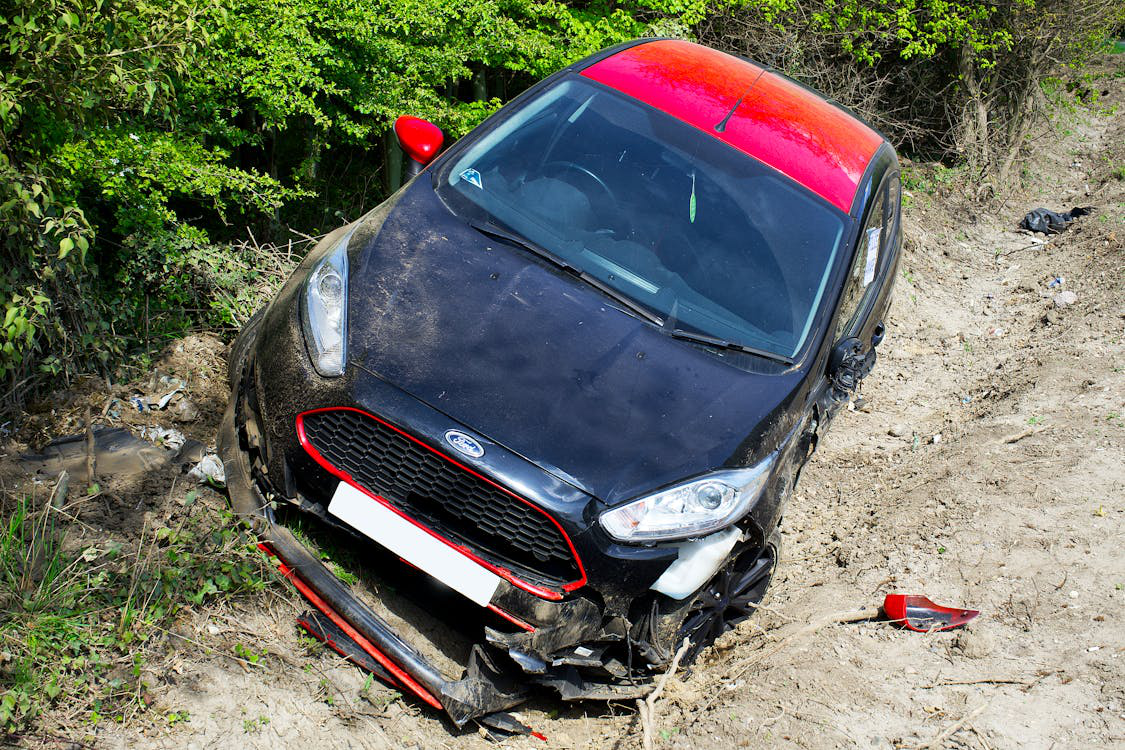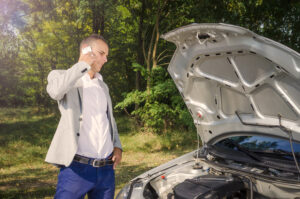What to Do After a Car Accident in Houston: A Practical Legal Guide for Injured Drivers
It happens fast. A green light, a glance at the mirror, and then impact. Whether it’s a major crash or...

It happens fast. A green light, a glance at the mirror, and then impact. Whether it’s a major crash or a minor one, being involved in a car accident can throw life off course. Car accidents are all too common in Houston, where traffic is heavy and freeways are always moving.
However, what you do in the minutes, hours, and days after a crash can make a big difference, especially if you were injured.
This guide breaks it all down: what to do right after the crash, what to avoid, and how to protect your legal rights if things get complicated. It’s written for real people because when you’re in pain, overwhelmed, or unsure, you need clear steps, not legal jargon.
Step 1: Prioritize Safety
If the vehicle is drivable, pull over to a safe location. Turn on your hazard lights. Before checking damage or exchanging information, make sure it’s safe to exit your vehicle. If anyone appears seriously hurt, call 911 immediately. In some cases, injuries don’t show up right away, so never assume things are fine based on how someone looks.
Step 2: Call the Police
Even if the accident seems minor, call the police and request an officer at the scene. In Texas, a police report isn’t just a formality. It’s a valuable document that insurance companies often rely on when determining liability.
Don’t let the other driver talk you out of reporting the crash. Having an official record of what happened can prevent future disputes.
Step 3: Exchange Information the Smart Way
Get the other driver’s:
- Full name and contact number
- Insurance company and policy number
- License plate number
- Driver’s license details
If they’re being aggressive or evasive, keep the conversation brief. Let the officer handle it. If you feel unsafe, stay in your car until help arrives.
Also, get contact information from any witnesses who saw the crash. Their perspective could support your version of events.

Step 4: Document Everything
Photos can tell the story better than words. Use your phone to take clear pictures of:
- All vehicles involved (close-up and wide shots)
- Damage to your car
- Road conditions, debris, or skid marks
- Traffic signs, lights, or signals nearby
- Any visible injuries
If you’re in pain, shaky, or disoriented, ask a passenger or bystander to help you get the shots.
Step 5: Get Medical Care—Even If You Feel “Okay”
Adrenaline can hide pain. Many people feel fine right after a crash, only to wake up sore or dizzy the next day. This is common with concussions, whiplash, and soft-tissue injuries.
See a doctor as soon as possible. Tell them about the crash and describe any symptoms, even if they seem small. This medical record could become an important piece of evidence if your condition worsens.
Personal injury attorneys often hear from clients who delayed treatment, and later had trouble connecting their injuries to the accident. Early documentation matters.
Step 6: Call Your Insurance Company, But Keep It Basic
Report the accident to your insurance provider quickly. Stick to the facts: where it happened, when, and who was involved. Don’t guess, exaggerate, or try to explain why something happened.
Avoid statements like “I’m fine” or “It was probably my fault.” These can be used against you later. If the other driver’s insurance company calls, you’re not required to give them a recorded statement. It’s okay to say, “I’m seeking legal advice and will get back to you.”

Step 7: Know When to Contact a Personal Injury Attorney
If you’ve been seriously injured, the other driver is uninsured, or things start to feel complicated, this is the time to speak with a legal professional.
Even if you’re not sure if you’re injured, oftentimes symptoms may not present right away, so it’s important to speak to an experienced injury attorney. It’s not uncommon for people to begin to feel the negative affects and injuries for days or weeks or even longer after an accident. Back and neck pain can hide for a time period after an accident.
Working with personal injury attorneys in Houston doesn’t mean you’re filing a lawsuit. It simply means someone is reviewing your case, making sure you understand your rights, and helping you avoid mistakes.
In cases involving significant medical bills, missed work, or ongoing symptoms, many injured drivers don’t realize the long-term impact until it’s too late. A car accident lawyer in Houston, like Mike Massey Law, PLLC, can help you understand what compensation might be available beyond just car repairs.
Step 8: Keep a Post-Accident Folder
Start a file, digital or physical, with everything related to the crash:
- Police report
- Medical records and bills
- Insurance communication
- Photos and witness info
- Time missed from work
You don’t have to be perfectly organized. Just keep it all in one place. It’ll save time and stress if you need to reference anything later.
Step 9: Be Cautious About Social Media
This one’s easy to overlook. What you post after a crash can be used to question your claim. Photos, check-ins, or even casual comments like “Feeling better already!” can be taken out of context.
It’s smart to avoid posting about the accident at all until everything is resolved. When in doubt, keep it offline.

Need Guidance After a Car Accident in Houston?
Talk to Mike Massey Law, PLLC, Before You Sign Anything!
If you’ve been in a car accident, the days that follow are full of decisions and pressure. Insurance adjusters may sound friendly, but their goal is to minimize payouts. At Mike Massey Law, PLLC, the goal is different: to help injured drivers understand their rights and avoid being shortchanged.
Whether it’s a minor crash or a serious injury case, their team of car accident lawyers helps clients feel informed, supported, and protected. There’s no pressure to file a lawsuit, just a chance to talk through your options.
Call Mike Massey Law, PLLC for a free consultation with a personal injury attorney and get honest guidance you can act on.
About the Author
Leah R. Denning is a legal content writer based in Houston. She writes practical, people-first articles on personal injury, estate planning, and consumer law to help readers feel more confident about their legal rights.




